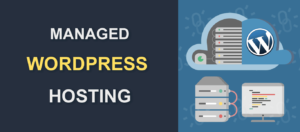In the vast and intricate realm of the internet, every website is built upon a foundation known as web hosting. This crucial yet often overlooked aspect of online presence plays a pivotal role in determining the success and performance of a website. In this comprehensive guide, we will delve into the intricacies of website hosting, exploring the various types, key features, and factors to consider when selecting the ideal hosting solution for your online venture.
What is Website Hosting?
Website hosting is the process of allocating space on a server to store and serve the files and data that make up a website. It involves making these files accessible to users on the internet. Understanding the significance of hosting is vital for website owners, as it directly impacts factors such as loading speed, security, and overall user experience.
Types of Website Hosting
- Shared Hosting: Shared hosting involves multiple websites sharing resources on the same server. It is cost-effective but may lead to performance issues if one site experiences high traffic.
- Virtual Private Server (VPS) Hosting: VPS hosting provides a dedicated portion of a server with its own resources, offering more control and better performance than shared hosting.
- Dedicated Hosting: With dedicated hosting, a website has an entire server to itself, providing maximum control and performance. This option is suitable for high-traffic websites.
- Cloud Hosting: Cloud hosting utilizes a network of virtual servers, allowing for scalability and flexibility. Resources are distributed across multiple servers, reducing the risk of downtime.
- Managed WordPress Hosting: Tailored for WordPress websites, this hosting type includes specialized features and optimizations for the popular content management system.
Understanding Key Hosting Features
Bandwidth and Data Transfer
Bandwidth refers to the maximum rate of data transfer, while data transfer is the actual amount of data moved from the server to users. Understanding these concepts is crucial for managing website traffic and preventing slowdowns. Insufficient bandwidth can result in slow loading times and user frustration. Adequate bandwidth and data transfer allowances are essential for accommodating varying levels of website traffic.
Storage Options
- Hard Disk Drives (HDD) vs. Solid State Drives (SSD): SSDs are faster and more reliable than traditional HDDs. Hosting providers offering SSD storage contribute to quicker website loading times, improving overall performance.
- Storage Scalability: The ability to scale storage as your website grows is essential. Many hosting plans allow for easy upgrades to accommodate increased storage needs.
Uptime and Reliability
Uptime refers to the percentage of time a server is operational. High uptime is crucial for ensuring that your website is consistently accessible to visitors. Hosting providers often offer SLAs (Service Level Agreements) that specify minimum uptime percentages. Guarantees ensure compensation or additional services if the provider fails to meet these standards.
Factors to Consider When Choosing a Hosting Provider
Performance and Speed
- Server Locations and Their Impact on Website Speed: The physical location of a server affects how quickly users can access your site. Choosing a hosting provider with servers strategically located can improve loading times.
- Content Delivery Network (CDN) Integration: CDNs distribute website content across multiple servers globally, reducing latency and improving speed for users in different geographical locations.
Security Measures
- SSL Certificates and Secure Connections: SSL certificates encrypt data transmitted between the user’s browser and your server, enhancing security. A secure connection is essential for protecting sensitive information.
- Server-Level Security Features: Hosting providers should implement robust security measures at the server level, including firewalls, malware scanning, and regular security updates.
Scalability
- Future-Proofing Your Website: Scalability involves the ability to easily upgrade resources as your website grows. Choosing a hosting provider that offers scalable plans prevents the need for frequent migrations.
- Upgrading Hosting Plans: Understand the process and feasibility of upgrading your hosting plan. A smooth transition ensures minimal downtime and uninterrupted website performance.
Website Hosting and SEO
Server Location and SEO
- Geographical Impact on Search Engine Rankings: Search engines consider server location when determining the relevance of a website to users in specific regions. Hosting your site closer to your target audience can positively influence search engine rankings.
- Global Content Delivery: Leveraging CDNs for global content delivery not only improves website speed but also contributes to a positive SEO impact by providing a better user experience.
Loading Speed and SEO
- Google PageSpeed Insights: Google considers page speed as a ranking factor. Regularly checking your website’s performance using tools like Google PageSpeed Insights helps identify areas for improvement.
- Mobile Optimization: With an increasing number of users accessing websites on mobile devices, optimizing your site for mobile platforms is crucial for both user experience and SEO.
Managed Hosting Services
Managed Hosting Defined
- The Benefits of Managed Hosting: Managed hosting services handle technical aspects, server maintenance, and security, allowing website owners to focus on content and business development.
- Outsourcing Server Management Tasks: Outsourcing tasks such as updates, security patches, and backups to the hosting provider ensures these critical aspects are professionally managed.
Popular Managed Hosting Platforms
- WordPress-Specific Managed Hosting: Hosting providers offer specialized plans for popular content management systems like WordPress, ensuring optimal performance and compatibility.
- Drupal, Joomla, and Other CMS Options: Similar managed hosting options are available for various content management systems, tailoring services to the specific requirements of each platform.
Tips for a Seamless Hosting Experience
Regular Backups
- Importance of Data Backups: Regular backups protect your website’s data in the event of server failures, data corruption, or security breaches.
- Automatic Backup Solutions: Opt for hosting providers that offer automated backup solutions, ensuring that your data is consistently and securely backed up.
Customer Support
- Evaluating Customer Support Options: Responsive and knowledgeable customer support is crucial. Consider factors such as 24/7 availability, communication channels, and the provider’s reputation for customer service.
- 24/7 Support and Ticket Systems: Around-the-clock support and efficient ticketing systems contribute to a seamless hosting experience, addressing issues promptly to minimize downtime.
In the dynamic landscape of the internet, choosing the right hosting solution is an essential step in establishing a successful online presence. By understanding the fundamentals of website hosting, exploring key features, and considering the factors that align with your website’s needs, you can embark on a journey toward a reliable, secure, and high-performing online platform. As technology continues to evolve, staying informed about the latest trends and advancements in the world of web hosting will empower you to make informed decisions that contribute to the long-term success of your website.

